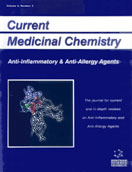Abstract
Apoptotic cell death can be triggered by death-inducing cytokines such and TNFα, Fas Ligand, and TRAIL, and death-receptors TNF-Rs, Fas, and TRAIL-Rs, or by mitochondrial-sensed events. The biochemical signalling pathways that lead from death receptors or mitochondria to the degradation of DNA and apoptotic cell death are wellcharacterized. Furthermore, it is clear that apoptotic cell death is important for the normal biology in all organisms. Apoptotic cell death is equally important in the context of virus infection such that the induction of apoptosis appears to be a generalised innate response to the insult of virus infection. As a consequence, viral-mediated regulation of apoptosis is crucial for the successful replication and survival of most viruses. For this reason viruses have evolved multiple strategies to subvert the apoptotic response. This review summarises the mechanisms by which viral gene products inhibit the production of TNFα, the interaction between TNFα and TNF-Rs, the expression of TNF-Rs, and inhibit virtually all aspects of TNF-R signalling, including TNF-R-mediated apoptosis and TNF-R-mediated proliferation and inflammation. Current Medicinal Chemistry - Anti-Inflammatory and Anti-Allergy Agents (2005). In press.
Keywords: cystein-rich repeat domains (CRDs), T-cell intracellular antigen-1, silencer of death domain (SODD), Ectromelia virus, Pro-Caspsae-8, adenovirus
 2
2

